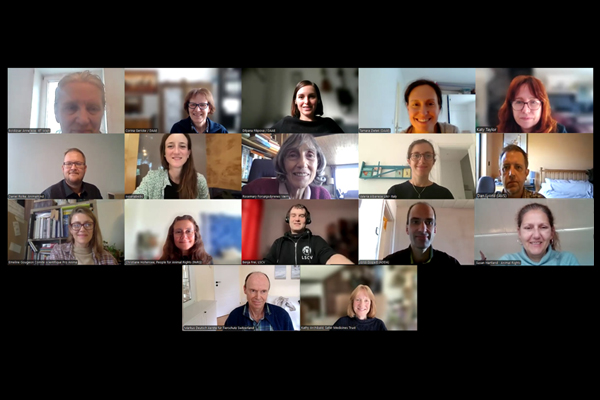ECEAE meeting sets strong impetus for animal-free science across Europe
On 23 September 2025, representatives of the European Coalition to End Animal Experiments (ECEAE) gathered online for their autumn meeting. Eighteen delegates from twelve European countries joined the discussion. The agenda was packed with updates on campaigns, EU policy developments, new scientific initiatives, and strategies to accelerate the transition towards animal-free research and testing.
New member
The ECEAE welcomed its newest trial member, Animalkind from Sweden. Founded in 2023, the organisation is dedicated to ending animal experiments and promoting modern non-animal testing methods. Its current focus includes campaigning against primate experiments at Sweden’s Karolinska Institute and rescuing former laboratory animals.
Progress at the EU Level
ECEAE Chair Dr Tamara Zietek reported that the ECEAE is highly involved in the process of the Commission’s Roadmap for animal-free safety assessment as a follow-up of the European Citizens' Initiative (ECI). It is expected to be published in early 2026. The roadmap will include concrete actions and indicators to track progress toward ending animal testing.
As part of the Roadmap the European Commission has published a catalogue of 31 so-called ‘Transitional Initiatives’ (TI), planned courses of actions that contribute to phasing out of regulatory animal testing. Stakeholders such as the ECEAE are encouraged to submit their own initiatives.
ECEAE consultant Dr Katy Taylor added that the ongoing REACH Regulation revision could have mixed impacts: while some tests (such as acute toxicity) may be deleted, new regulations for endocrine disruptor testing could increase animal use. The ECEAE will stay closely involved in this critical policy process to ensure genuine progress towards animal-free testing.
Joint campaigns
A major topic was the Horseshoe Crab Campaign, which aims to remove the use of horseshoe crab blood (the LAL test) from the European Pharmacopoeia. Together, ECEAE members have collected more than 20,000 signatures, and a formal handover to the European Medicines Agency (EMA) is planned for November. The campaign highlights the availability of the synthetic rFC test and the urgent need to protect this endangered species.
Dr Dilyana Filipova, scientific expert at Doctors Against Animal Experiments (DAAE), gave a summary of the paper on Botox animal testing she and Dr Katy Taylor co-authored, published in NAM Journal recently. It showed that the mouse lethality test (MLB) remains in widespread use despite validated animal-free tests. ECEAE will continue to call on the European authorities to remove the MLB from the Pharmacopoeia and to improve data transparency on animal use in botulinum toxin testing.
Several members reported on their efforts to end the use of non-human primates (NHPs) in research. LAV presented its new scientific position paper outlining available non-animal methods. Updates were also shared on the campaign to end public funding for the BPRC, the Netherlands’ largest primate centre — a potential landmark victory if funding is withdrawn.
The meeting once again demonstrated that the ECEAE is effectively shaping the transition toward modern, ethical, and scientifically advanced research without animal suffering.

ECEAE online meeting on 23 September 2025.
